Exploring the red planet
A new wave of missions aim to unlock the secrets of Mars
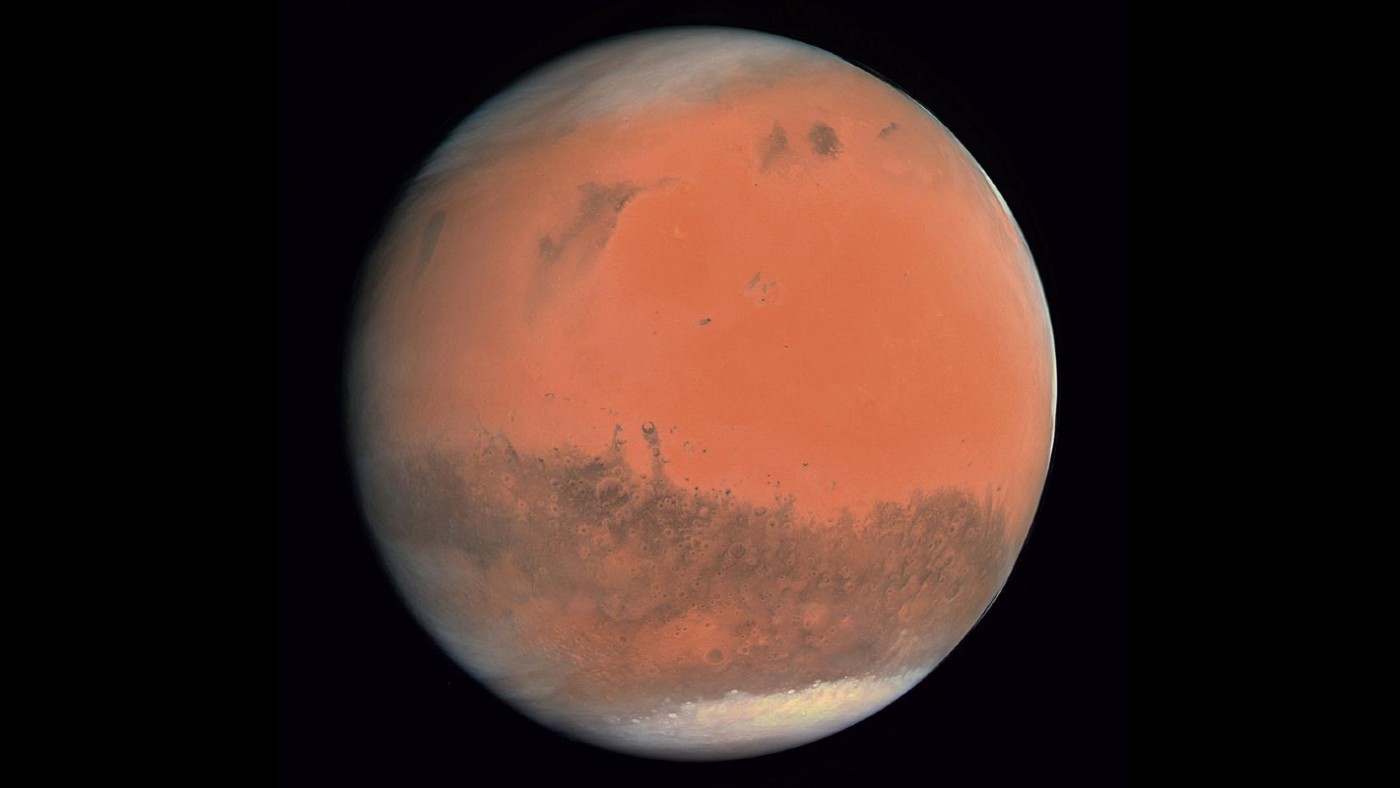
A free daily email with the biggest news stories of the day – and the best features from TheWeek.com
You are now subscribed
Your newsletter sign-up was successful
Mars is once again making headlines today after astronomers have found signs of liquid water trapped underneath vast ice sheets located at the southern most point of the planet.
Scientists at the Italian Space Agency have identified a lake, believed to be 12.5 miles in diameter, using the Mars Advanced Radar for Subsurface and Ionosphere Sounding instrument (Marsis).
The discovery follows Nasa locating at least eight ice sheets on the planet’s surface in January, many of which could be easily accessible by future explorers.
The Week
Escape your echo chamber. Get the facts behind the news, plus analysis from multiple perspectives.

Sign up for The Week's Free Newsletters
From our morning news briefing to a weekly Good News Newsletter, get the best of The Week delivered directly to your inbox.
From our morning news briefing to a weekly Good News Newsletter, get the best of The Week delivered directly to your inbox.
What makes the lake and ice sheets so significant is that the hunt for water on Mars has been somewhat “elusive” for researchers around the world, according to Wired.
Not only do the findings suggest that Mars may have contained more water than previously believe, but it also raises the prospect of finding life on the planet.
Have signs of life been found on Mars?
That depends on what a sign of life is. Scientists have not yet found any life form on the red planet, whether that’s intelligent beings, animals or even bacteria.
A free daily email with the biggest news stories of the day – and the best features from TheWeek.com
This could be due to Mars’s atmosphere, which is predominantly carbon dioxide (CO2) and lacks the levels of Nitrogen (N) and oxygen (O2) needed to sustain life as we know it. The planet’s atmosphere also lacks the necessary protection against the Sun’s rays, exposing life forms to “dangerous” levels of radiation, says Business Insider.
While Mars’s surface seems hostile for most creatures found on Earth, there is a chance the red planet may have supported life millions of years ago, evidence of which could be found trapped in ice sheets.
In January, a Nasa satellite orbiting Mars discovered eight sites that appear to have “huge ice deposits”, The Independent reported at the time. These could be easily accessed if humans were to land on them.
While scientists were already aware of the presence of ice, Science Mag says the large sheets are located much closer to the surface than was previously thought.
Why are ice sheets so significant?
It’s widely believed that where there’s water, there’s life - even if the water is frozen.
Despite Mars’s hostile atmosphere ruling out any chance of finding life on the planet’s surface, there is hope that small organisms, fossils or even long-dead creates may be frozen in ice.
The most recent finding, however, goes on step further than the discovery of ice sheets in January.
This is because the lake contains running water “similar to lakes that are found beneath Greenland and Antarctic ice sheets on Earth”, CNN reports.
Arizona State University’s research director for space, Tanya Harrison, told The Verge: “Pretty much anywhere there is liquid water on Earth, you find something that’s managed to survive in it.”
Bacteria has been located on Earth in pools of water located under some of the planet’s massive glaciers, the tech site says, so an “underground reservoir” on Mars could offer a scientists a trove of extraterrestrial information.
However, Claire Cousins, an astrobiologist from the University of St Andrews, told the BBC that “it’s plausible that the water may be an extremely cold, concentrated brine, which would be pretty challenging for life.”
How long will it take to get to the lake?
It may be a long time before scientists get to see if anything lives in the subglacial lake on Mars’s south pole.
Speaking to The Guardian, lead researcher at the Italian Space Agency, Roberto Orosei, said: “Getting there and acquiring the final evidence that this is indeed a lake will not be an easy task.”
“It will require flying a robot there which is capable of drilling through 1.5km of ice and this will certainly require some technological developments that at the moment are not available”, he said.
In the meantime, The Guardian says researchers will continue to hunt for more signs of subglacial lakes on Earth’s neighbouring planet.
Could life on Earth originate from Mars?
Perhaps, but this is a hotly-debated topic.
Some scientists suggest that a meteorite from Mars may have impacted on Earth, or vice versa, billions of years ago, potentially contaminating the very early stages of life, says Space.com.
The theory, kick started by Steven Benner, a researcher at The Westheimer Institute for Science in the US.
He claims a very early basic from of DNA believed to be the “building block” of life could only have originated on planets with “highly oxidised molybdenum and boron”, such as Mars, says science news site ExtremeTech.
While the exchange of meteorites between the two planets isn’t entirely far fetched, Space.com says “debates rage over whether or not tiny organisms would be hardy enough to survive the voyage through a freezing, airless, radiation-filled vacuum and kick off life at its new home.”
Perhaps those answers lie frozen in one of the red planet’s growing number of water sources.
-
 Magazine solutions - February 27, 2026
Magazine solutions - February 27, 2026Puzzle and Quizzes Magazine solutions - February 27, 2026
-
 Magazine printables - February 27, 2026
Magazine printables - February 27, 2026Puzzle and Quizzes Magazine printables - February 27, 2026
-
 ‘The forces he united still shape the Democratic Party’
‘The forces he united still shape the Democratic Party’Instant Opinion Opinion, comment and editorials of the day
-
 How Mars influences Earth’s climate
How Mars influences Earth’s climateThe explainer A pull in the right direction
-
 Blue Origin launches Mars probes in NASA debut
Blue Origin launches Mars probes in NASA debutSpeed Read The New Glenn rocket is carrying small twin spacecraft toward Mars as part of NASA’s Escapade mission
-
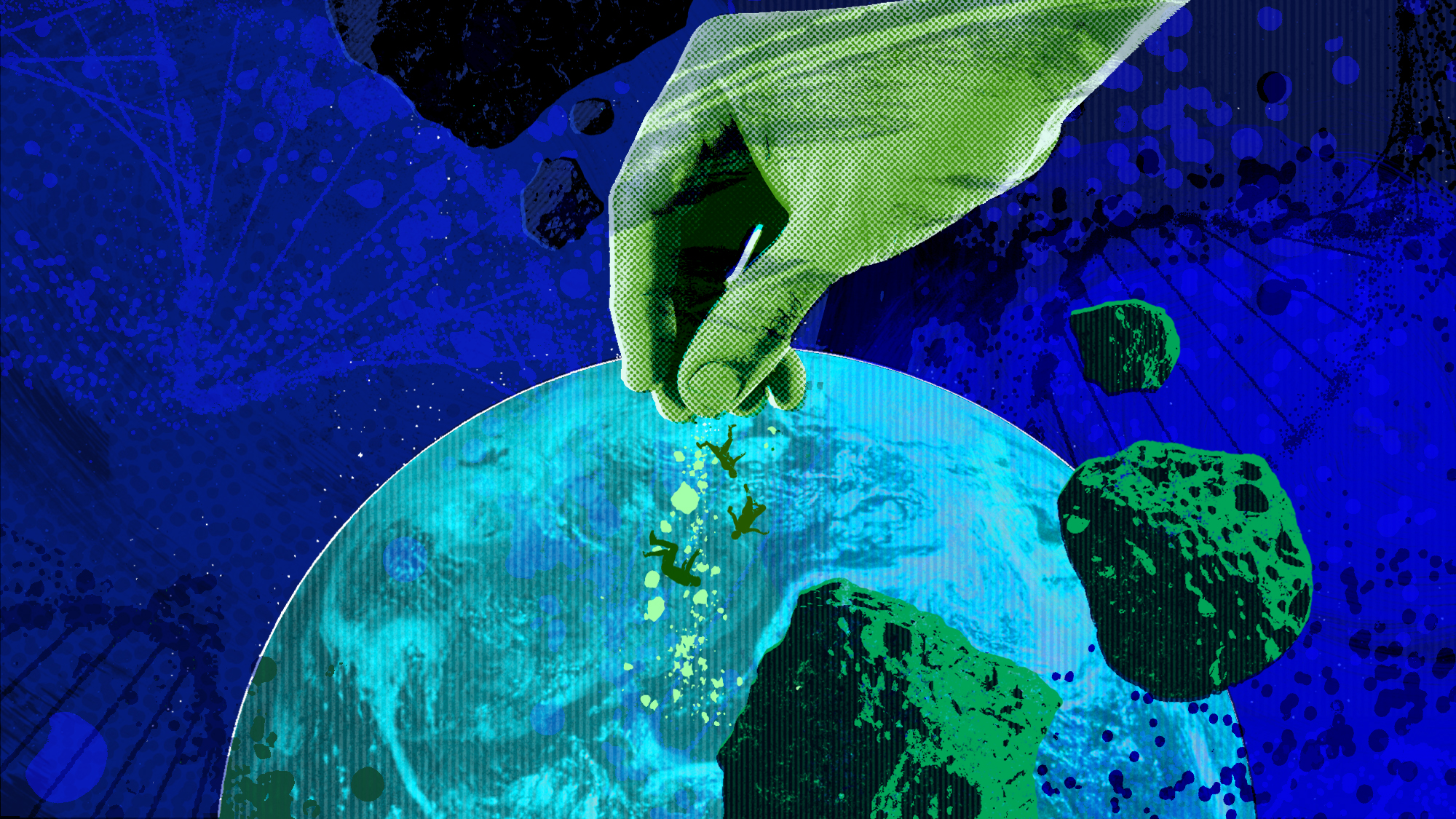 Panspermia: the theory that life was sent to Earth by aliens
Panspermia: the theory that life was sent to Earth by aliensUnder The Radar New findings have resurfaced an old, controversial idea
-
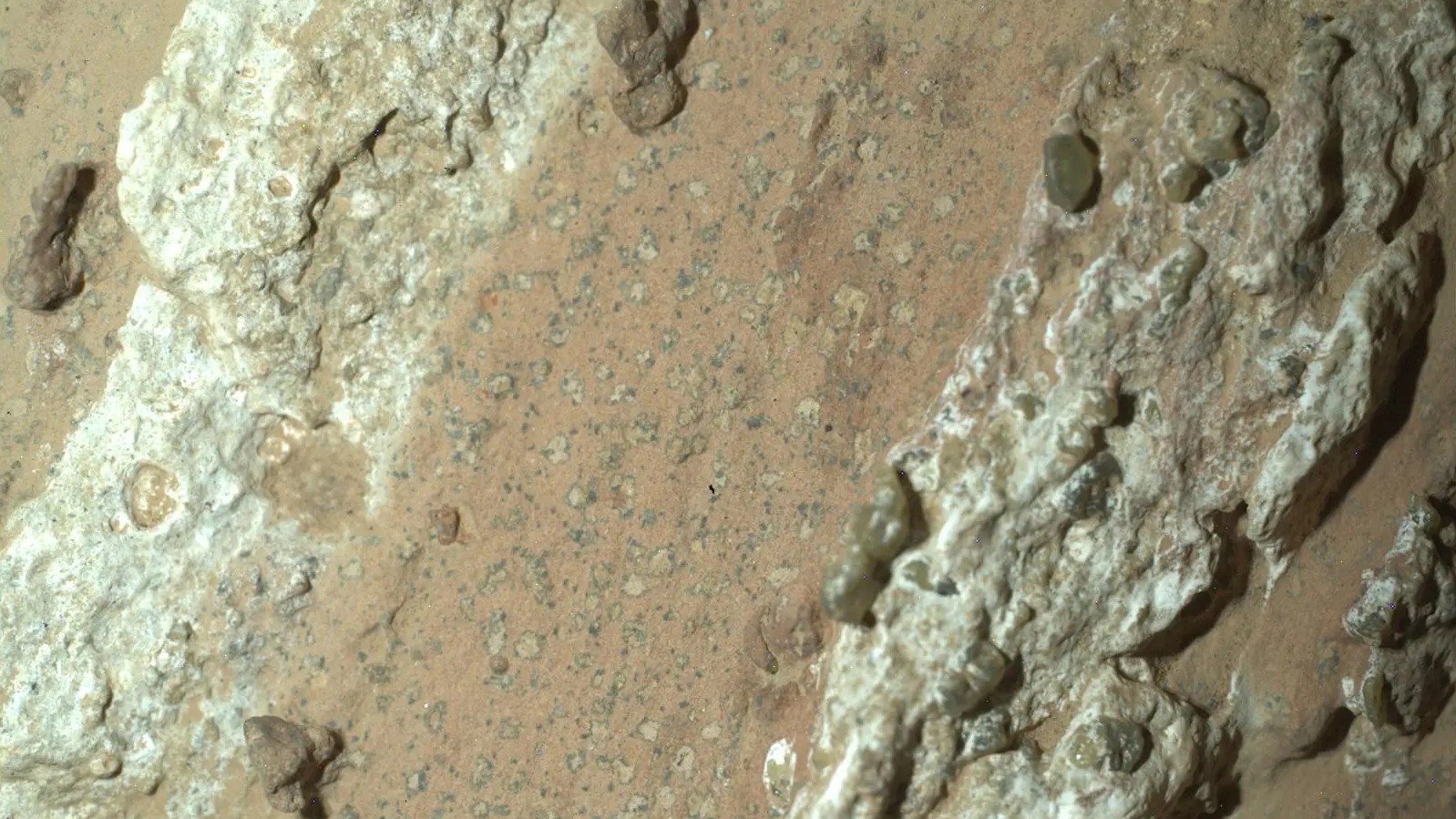 NASA reveals ‘clearest sign of life’ on Mars yet
NASA reveals ‘clearest sign of life’ on Mars yetSpeed Read The evidence came in the form of a rock sample collected on the planet
-
 Answers to how life on Earth began could be stuck on Mars
Answers to how life on Earth began could be stuck on MarsUnder the Radar Donald Trump plans to scrap Nasa's Mars Sample Return mission – stranding test tubes on the Red Planet and ceding potentially valuable information to China
-
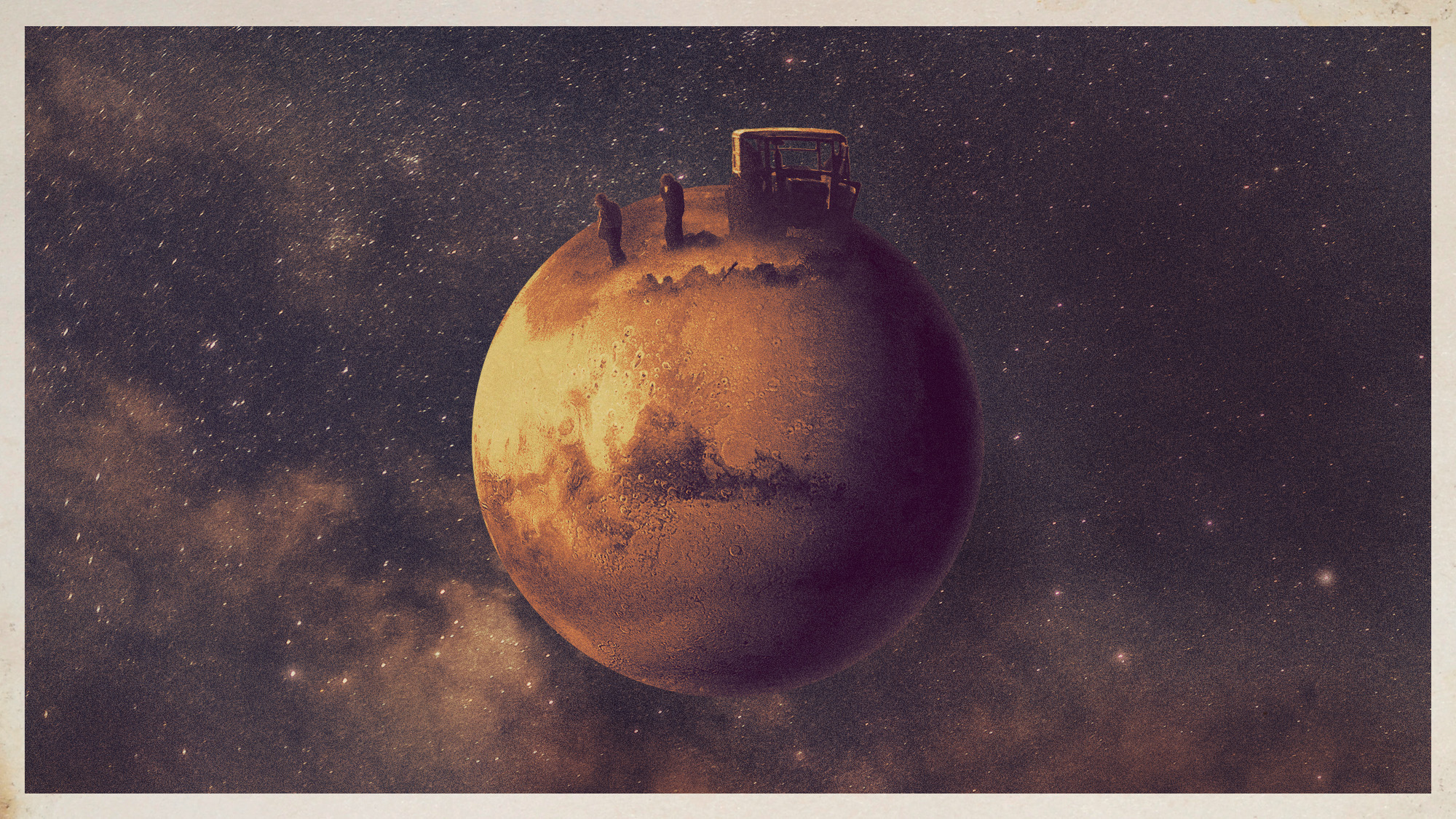 Mars may have been habitable more recently than thought
Mars may have been habitable more recently than thoughtUnder the Radar A lot can happen in 200 million years
-
 Why water on Mars is so significant
Why water on Mars is so significantThe Explainer Enough water has been found to cover the surface of the Red Planet – but there's a catch
-
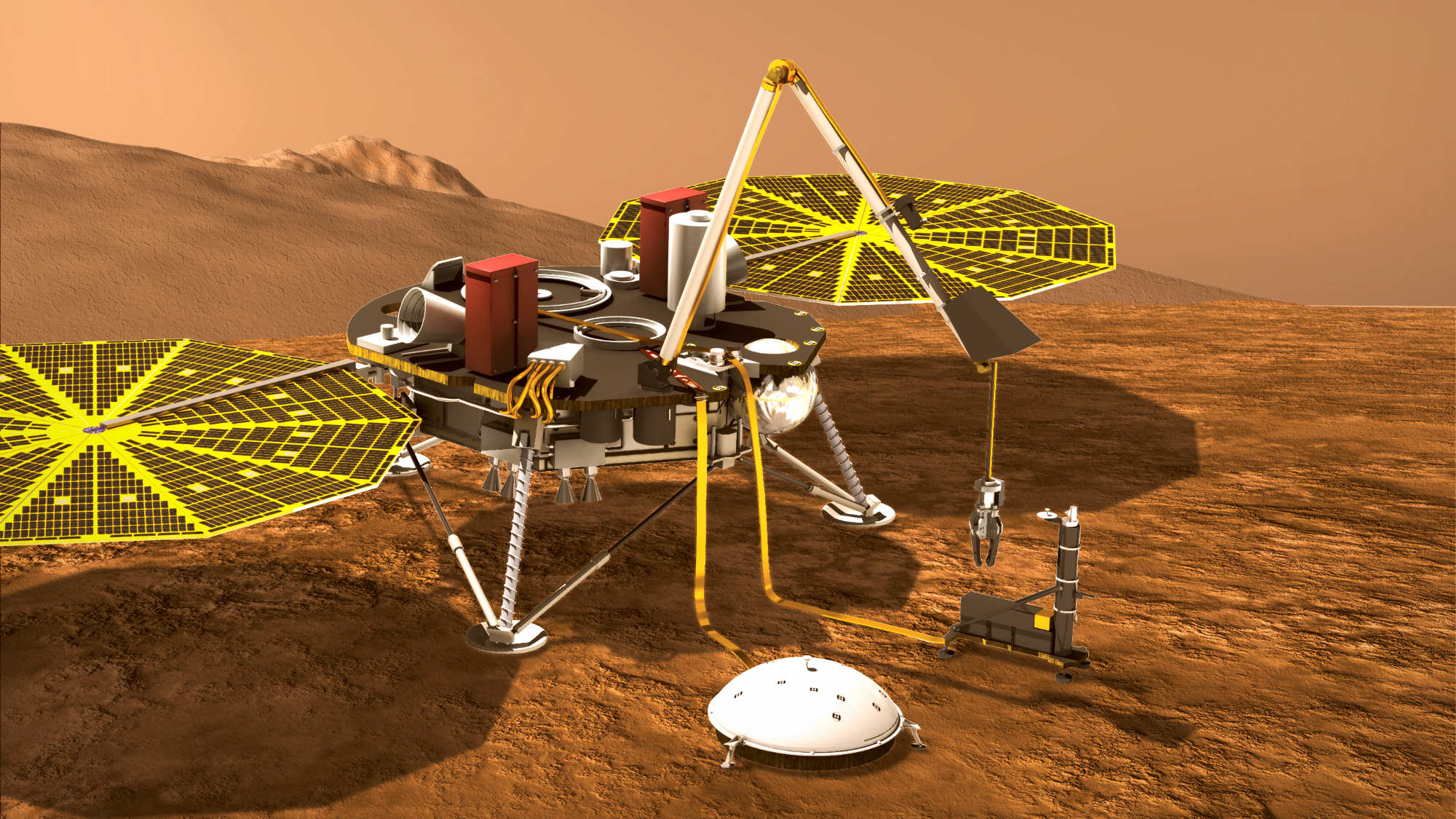 Liquid water detected on Mars raises hopes of life
Liquid water detected on Mars raises hopes of lifeSpeed Read A new study suggests huge amounts of water could be trapped beneath the surface of Mars